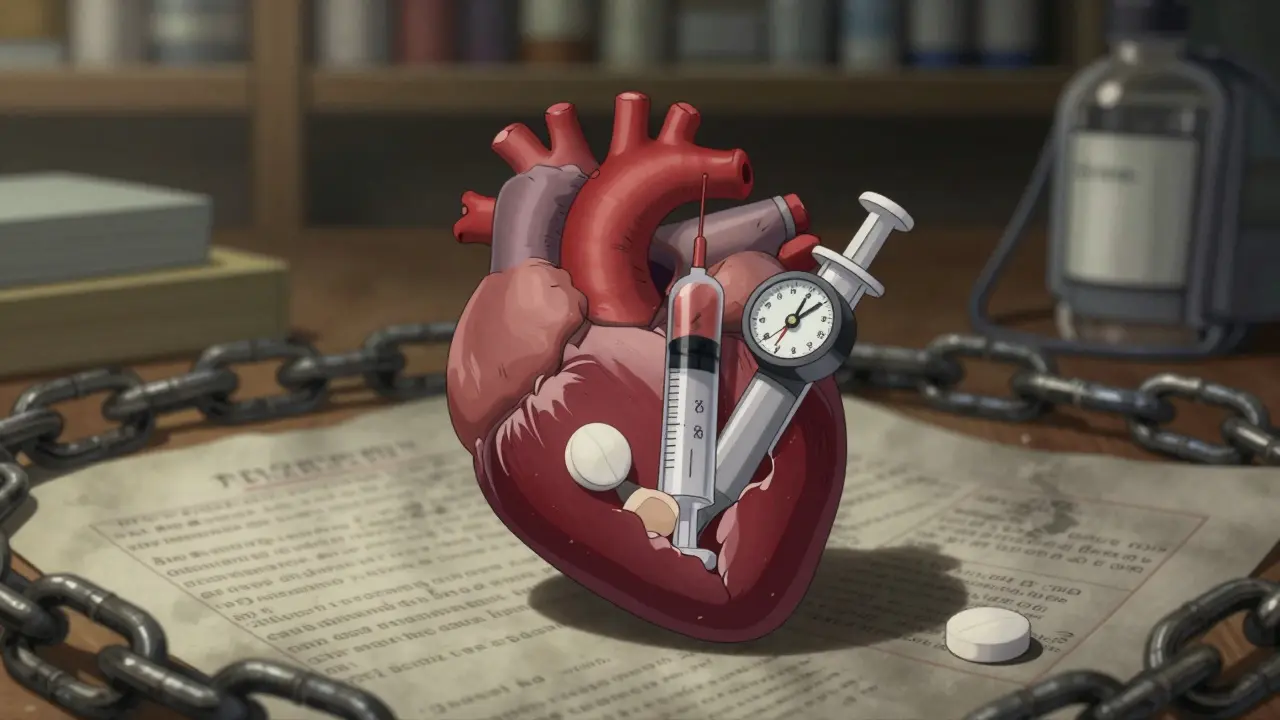If you grew up in the shadow of large hospitals or followed the world of psychiatric medicine, the name Mellaril might ring a bell. Once prescribed widely in the UK and around the globe, this antipsychotic medication—known generically as thioridazine—has a controversial past. While it was a lifeline for some battling severe mental illness, it also came with heavy baggage. What happened to Mellaril, and why do some doctors still whisper its name, even in 2025?
Understanding Mellaril: The Science Behind the Medication
Mellaril, or thioridazine, belongs to the family of drugs called phenothiazines. It landed in the UK back in the 1950s and quickly became a mainstay for those fighting schizophrenia and other psychotic disorders. Schizophrenia, as many people know, is more than just seeing things or hearing voices—it can twist thoughts, blur reality, and challenge basic life skills. Family members often felt desperate, watching loved ones drift into their own worlds. At a time when padded rooms were seen as progressive, Mellaril was promised as a chemical key to unlock sanity.
How does it work? Picture the brain's wiring, busy with messages flowing between neurons. In schizophrenia, dopamine—a brain chemical—is too active in certain places. Mellaril blocks dopamine’s action at receptor sites, slowing down those racing thoughts and easing restless energy. Doctors also reached for it to calm anxiety, treat hallucinations, and, in rare cases, address behaviour issues in children.
But Mellaril wasn’t just a psychiatric drug. Some creative doctors prescribed it for severe agitation in dementia patients or to kill infectious bacteria in stubborn medical cases. It's not standard for these uses—and authorities later hammered down on off-label prescriptions. Despite its effectiveness, especially in patients who didn't respond to lighter antipsychotics, Mellaril soon unraveled its dark side. Patients sometimes described it as a "cloud"—dulling their pain but smothering their spark, too.
The rise and fall of Mellaril is rooted in its unpredictable risks. By the late 20th century, the medical community knew the drug could prolong the heart’s QT interval—a fancy way of saying it messes up your heart’s electrical rhythm. The European Medicines Agency and the FDA warned that these changes, in some cases, could be deadly. In the wee hours at hospitals, heart monitors occasionally blared as a patient slipped into a fatal arrhythmia. This is why pharmacists now hand out antipsychotics with long lists of do’s and don’ts, but Mellaril’s warnings were written in real blood. Ultimately, most pharmacies yanked it from shelves or left it for absolute emergencies. It’s also on the World Health Organization’s list of drugs that should be delivered with the utmost caution, if at all.
Yet there’s more: Mellaril was also pulled because of a troubling side effect profile. The medication could trigger a whole host of symptoms: heavy sedation, blurred vision, dry mouth, sudden drops in blood pressure, constipation, and, for some, a permanent tremor known as tardive dyskinesia. Imagine being shackled to a medicine that helps your mind but makes your body misbehave. There’s a term—"neuroleptic malignant syndrome"—that sends shivers down the spines of emergency doctors. It’s a rare, life-threatening reaction to antipsychotics that can bring on fever, heavy sweating, muscle rigidity, and confusion.
So, why mention Mellaril now? Even though it’s mostly off the market, you’ll sometimes see it on old prescription charts or in discussions about treatment-resistant mental illness. Some countries still allow it in special settings, if no alternatives work. In 2019, for example, a tiny number of UK patients received it under strict monitoring. That figure keeps falling every year, and now in 2025, finding a doctor willing to prescribe Mellaril is like spotting a rare bird in Clifton's leafy parks.
| Year | Estimated Mellaril Prescriptions in the UK |
|---|---|
| 1995 | 250,000 |
| 2005 | 28,000 |
| 2015 | 2,800 |
| 2021 | 350 |
| 2025 | <50 |
Which brings us to a key point: most psychiatrists now reach for newer, safer antipsychotics first. These newer drugs, often called atypical antipsychotics, include risperidone, olanzapine, and aripiprazole. They’re not perfect, but their risk of fatal heart arrhythmias and permanent movement disorders is lower. Still, some mental health professionals remember Mellaril as a last-resort option, especially when nothing else worked. It’s not famous for cheer, but its history is rooted in big questions: How much risk should we tolerate to quiet a tortured mind? And how do we balance dangers against the agony of untreated psychosis?

Who Might Still Use Mellaril – And Why?
You might be wondering: If Mellaril is so risky, why would anyone ever use it again? The answer hides in the stubborn pockets of treatment-resistant schizophrenia. While modern antipsychotics give relief to a majority, there are people whose symptoms refuse to budge. Some patients bounce from one tablet to another, their worlds still fractured by paranoia and voices. When every safer medication has failed, a psychiatrist might dust off Mellaril’s file—under heavy rules and with extreme caution.
Here’s how doctors approach this tough decision these days. British guidelines say Mellaril should only be considered if nothing else has worked, and if the patient understands the risks. Blood tests, ECGs, and repeated check-ups follow each prescription. Patients are told bluntly: if you notice a racing heart, light-headedness, fainting, or chest pain, get help yesterday, not tomorrow. These aren’t rare warnings—they’re the red lights that can save a life.
One way to lower the danger is expert monitoring. Doctors run an ECG (electrocardiogram) before starting and then again after a few doses. If heart rhythm changes show up, treatment stops immediately. Another must—careful review of other medicines. Even a humble over-the-counter antihistamine can mess with the heart further. People on Mellaril are steered clear of grapefruit juice, which blocks an enzyme that breaks the drug down, risking a toxic build-up. Drinking alcohol while on Mellaril? Not a smart move, as it can boost the sleepy, dizzy side effects—and make driving impossible.
In rare cases—a handful each year—specialists might turn to Mellaril for something called late-onset schizophrenia, which shows up after age 40. Why? Sometimes older antipsychotics quiet certain symptoms without the weight gain or diabetes risk linked to newer drugs. This is hotly debated, though, and very few doctors will try it outside of tightly controlled hospital wards.
There is a side to this story people rarely discuss—the patient’s voice. Many who took Mellaril remember its strengths: a clearer head, less fear, and moments of peace. But the price was steep. Many described feeling “muted” or losing some of their personality. If you talk to mental health advocates or read memoirs from the 1980s and ’90s, you’ll find mixed reviews: gratitude for the relief, but frustration over constant monitoring, drowsiness, and unpredictable body changes. Friends sometimes noticed a shuffle in someone’s step or a face that stopped showing emotion.
If you or someone you know is handed a prescription for Mellaril today, ask questions—lots of them. Demand clear answers about why it’s being used, what alternatives have failed, and how your health will be watched. Always inform your GP, dentist, and A&E team, because even an antibiotic or painkiller can collide badly with thioridazine. Safety is not optional—it’s the heart of the deal.
All told, using Mellaril in 2025 is a bit like flying a vintage biplane: thrilling if you know what you’re doing, terrifying if you don’t. Thankfully, new medicines mean most people never need to dust off this old drug. But for the rare patients who have tried everything else, it’s still on a few shelves—wrapped in warnings, rarely opened, but never entirely forgotten.

Key Safety Tips and What to Watch For
No matter how small the risk, understanding side effects can be lifesaving. Below is a quick-hit list of practices and watchpoints—if you or a loved one crosses paths with Mellaril or thioridazine in any form. For some people, it could make all the difference.
- Regular Heart Checks: Mellaril can disrupt your heart’s rhythm. Insist on regular ECGs before and during treatment. Ask your GP or psychiatrist to explain intervals—especially the QTc interval.
- Medication Interactions: Make a list of every medication, supplement, and herbal tea you take. Mellaril can clash with everything from antibiotics (like clarithromycin) to antidepressants and over-the-counter antihistamines.
- Signs of Trouble: Dizziness, fainting, chest pain, breathlessness, or a sudden rapid heart rate are red-flag symptoms. Seek urgent care if any appear—don’t wait.
- Temperature Management: Phenothiazines like Mellaril mess with your body’s ability to manage heat. In Bristol’s next heat wave, stay hydrated and keep cool, or risk sudden overheating.
- Avoid Alcohol: It multiplies sedation and confusion. Same with recreational drugs. Play it especially safe if you’re a student or living alone.
- Routine Blood Tests: Besides the heart, this medicine can affect the liver, blood cells, and eyesight. Stick to scheduled check-ups even if you feel fine.
- Report All Side Effects: Even mild symptoms—like an odd light-headedness or twitchy muscle—should be mentioned. Catch problems early; it’s not being dramatic, it’s smart.
- Monitor Mood: Rarely, Mellaril can make mood swings or suicidal thoughts worse. Write down what you feel and share it honestly with your care team.
- Emergency Contacts: Have a plan. Let trusted friends or family know you’re on this medicine and what to watch for.
- Consult Your Pharmacist: Sounds basic, but UK pharmacists are often the first to flag a dodgy mix. Pop in with your prescription and just ask, “Is this safe with my other meds?”
There’s one last tip you won’t always find online: Don’t keep old bottles lingering in the medicine cupboard, especially if you stop taking Mellaril. Outdated medicine is more than a mess—it’s a silent risk for kids and pets, and the temptation for anyone in a tough spot. Ask your local pharmacy about safe disposal—they’ll know what to do.
Mellaril’s legacy isn’t just medical—it’s personal, and sometimes painful. But like every page in the history of mental health care, it’s a reminder that there’s no such thing as a quick fix. If you’re staring down a hard diagnosis or weighing serious medicines, ask for help, keep asking questions, and never settle for a one-size-fits-all answer. Your safety—and your story—matter more than any drug that’s come before.






Evelyn Shaller-Auslander
July 16, 2025 AT 05:59still think about it sometimes.
Gus Fosarolli
July 17, 2025 AT 03:47they gave this to my uncle like it was a magic fairy dust. he started drooling in church.
now he can’t hold a fork without looking like a confused raccoon.
also his eyes? they never stopped twitching.
so yeah. cool drug. just don’t let your grandma take it.
Nirmal Jaysval
July 19, 2025 AT 00:25indians know this. we dont use this crap anymore.
old docs still cling to it like it was their first love. sad.
Emily Rose
July 20, 2025 AT 14:09Any doctor who prescribes Mellaril today is either a time traveler or hasn't updated their medical textbooks since 1998.
There are safer, better, *effective* options.
Stop romanticizing toxic relics. People's hearts are not test subjects.
Benedict Dy
July 22, 2025 AT 09:22Its withdrawal from mainstream use reflects a maturation of risk-benefit analysis, informed consent protocols, and cardiac safety monitoring.
One cannot ethically justify the QT prolongation risk profile when risperidone offers comparable efficacy with a 98% lower incidence of torsades de pointes.
It is not nostalgia-it is negligence.
John Power
July 24, 2025 AT 04:38but she also said she felt like a ghost in her own body.
she still has the tremor.
we all do.
she’s okay now, but i still get mad when i hear people talk about this like it’s just another pill.
it’s not. it’s a trade-off no one should make unless they’ve lost everything else.
Scott McKenzie
July 25, 2025 AT 10:37if you're even thinking about this med, make sure your doc orders a baseline ECG and then another one after 7 days.
also-no grapefruit.
and if you start feeling like you're about to faint? go to the ER.
don't wait.
and hey, if you're reading this and you're on it-i see you. you're not alone. ❤️
Jeremy Mattocks
July 26, 2025 AT 02:09There was this one guy-67, paranoid schizophrenia since he was 19, tried every drug under the sun.
Nothing worked. Not clozapine, not quetiapine, not even olanzapine with lithium.
Then they tried Mellaril.
He stopped yelling at the walls.
He started eating again.
He smiled for the first time in 15 years.
But he had to get weekly ECGs, avoid every other medication like the plague, and his wife had to monitor his blood pressure twice a day.
He lived another 8 years.
He died of old age, not arrhythmia.
Was it worth it?
For him? Absolutely.
For society? We don’t talk about this enough.
There are still people out there who have no other options.
And for them? Mellaril isn’t a relic-it’s a lifeline.
Just one wrapped in razor wire and signed with a blood oath.
Paul Baker
July 26, 2025 AT 13:59but then i remembered my cousin took this and now he cant walk right
and his face moves by itself
like a robot trying to cry
so yeah
its not worth it
just say no to old drugs
❤️
Zack Harmon
July 28, 2025 AT 03:57THEY KILLED PEOPLE WITH THIS.
HEARTS STOPPED.
FAMILIES CRIED.
AND NOW SOMEONE IS WRITING A POEM ABOUT IT?
IT’S NOT HISTORY.
IT’S A GRAVEYARD WITH A PRESCRIPTION PAD.
STOP GLAMORIZING DEATH.
WHY ARE WE STILL TALKING ABOUT THIS?!?!
Jeremy S.
July 28, 2025 AT 16:02but if you’re not in a locked ward with a cardiologist on speed dial? don’t even think about it.
there’s no glory here.
Jill Ann Hays
July 30, 2025 AT 05:14When we pharmacologically suppress the self to restore the mind, have we not erased the very subject we sought to heal?
Is a quiet mind, devoid of its authentic turbulence, still a mind worth preserving?
The phenothiazine era was not a medical advancement-it was a philosophical surrender.
And yet, we cling to it like a rosary in a godless world.